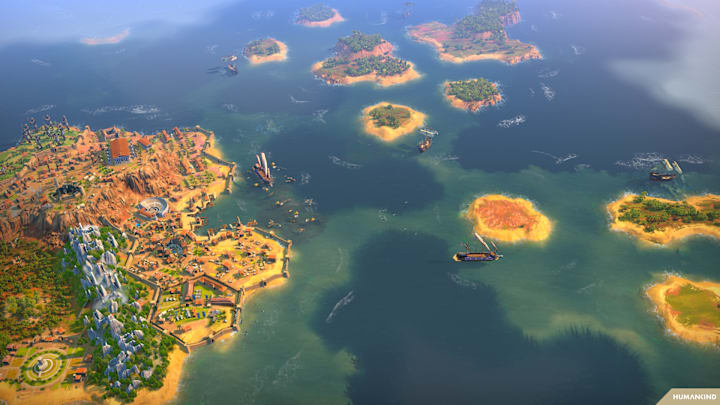Civilization 7 and Humankind will be as influential as Civ 5, says Amplitude CEO
By Marco Wutz

Much has been said about the mechanical similarities between Civilization 7 and Humankind as well as the controversial reception both 4X games received from their respective communities — but does that all come down to the culture swap mechanic being a bad idea, its execution simply not having been perfect yet, or turn-based strategy fans being too stubborn to accept significant change?
DBLTAP spoke to Amplitude Studios CEO Romain de Waubert de Genlis and COO Max von Knorring at Gamescom 2025, asking exactly this question.
“It’s interesting. We’ve read a lot of their negative reviews and positive reviews – you should never forget to read the positive ones as well – and it’s not necessarily the mechanics themselves that are being attacked,” said Romain de Waubert de Genlis. “As you said, it’s more the execution. It’s tricky, when you truly innovate. I don’t know if you remember Civ 5’s release, but it was difficult for players, because it was getting rid of a lot of things people were used to with the artstyle, going from squares to hexagons, the one unit per tile drama, and so on. But if you look at it 15 years later, a lot of things they introduced at that point are the norm for many 4X games.”
He said that after the initial shock Humankind triggered in some players by asking them to swap to a different culture at the end of each era, the reasoning behind the mechanic’s existence was widely accepted as being sensible. It helped that Humankind still offered an option to stick to the initial civilization for an entire playthrough. In hindsight, the CEO said, holding players’ hands a bit more and better understanding their wishes and fears would have helped the studio to make the mechanic’s debut better — but it took Amplitude years of working with the community and analyzing feedback to learn that.
“I think at launch a lot of fans felt attacked, like ‘What?! You dare make a game like Civ?’ So we were like ‘It’s respectful, we love Civ as well, but we want to bring something new and different to the recipe,’” the CEO added.
Max von Knorring agreed, saying: “Humankind wasn’t perfect, because it was such a crazy move to do this in our first historical game. It was our dream from day one. We did all we could and even with all our heart we still made some mistakes. A change like that is a big change.”
He also agreed that both Amplitude and Firaxis didn’t nail the execution of the culture switch.
“Obviously, when Firaxis announced Civ 7 and I saw the first video at Gamescom last year, I was like ‘What? Oh, cool!’ The game you’ve loved the most since you became a gamer is getting closer to the game you created as an homage to it — it felt amazing,” de Waubert de Genlis added. “We are extremely happy to see that and we understand a lot of the heat they get. I hope for them that they will be able to take the time to address that, but I think it’s more the execution. A succession of cultures is difficult. People hate to lose stuff. You’re not spending five hours in an era just to lose your stuff and have the next era make the rest of it pointless.”
“When we talk about Civ 5, it took people maybe like 15 years to realize that it was a really great move to make. I think it will be the same for Civ 7 and Humankind with many of their mechanics and their point of view on history and how to put it into gameplay. So yeah, it takes time. Don’t brutalize your players,” he concluded.
For more, check out DBLTAP's full conversation with Amplitude's leaders.
More news on DBLTAP:
feed